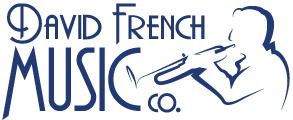
Beginning Music Guide: When it's not Working
“I can’t make a sound!” The student has had the instrument for a few weeks and gone to several lessons in school. Yet no matter how hard they try, it just isn’t working.
Maybe they can’t make a sound at all, or maybe every other student in their lesson group has moved on to “Mary had a Little Lamb” and they can’t even play “Hot Cross Buns” yet.
After the excitement of choosing an instrument and assembling it for the first few times and learning how to play, it can be extremely frustrating to have it seem like it’s not working out. It is important to know that musicians experience moments of struggle and difficulty at all stages of the playing journey, from beginners to professionals. These tips will help to ease some of that frustration and help you to see learning music as a process.
Be Patient
This tip may be the hardest to hear, but it’s necessary to have patience when learning a new instrument-- sometimes a lot of it!
Playing an instrument for the first time involves an embouchure (mouth position), hand position and even body position that is entirely unfamiliar. Thus, it requires muscles that we are not used to using on a daily basis. No one can do it perfectly right away.
Focus on Embouchure
For those playing a wind instrument, the embouchure (mouth position) can be a huge factor in whether or not the student can play the instrument. By spending extra time making sure that the student is using the correct mouth position and strengthening the facial muscles, the student will be playing well in no time.
Consider looking up videos online to guide you or ask for extra help from the child’s band teacher or private lesson instructor.
Focus on Hand Position
The hand position is also a vital part of playing the instrument. Playing with improper hand position can cause discomfort and the inability to play when starting out.
Combat this by looking up the proper hand position for your instrument online or consulting with the music teacher until the student gets it right.
Keep Practicing
The saying is true: practice makes perfect. In order to master a new instrument, it is essential to practice! Remember that even advanced and professional musicians have to master new skills and play music that is difficult for them.
Practicing won’t always be easy, but by spending time with the music --even through moments of frustration-- you will see improvement.
Get Help
Learning a new instrument can’t be done alone. Don’t be afraid to ask your band or orchestra teacher for extra help when you need it.
Consider investing in private lessons. These can be especially helpful when a student is starting out and can prevent the student from developing bad habits.
Don’t Give up
Playing an instrument for the first time can be hard, but don't give up! The fact that you are struggling in the beginning does not mean that the instrument “isn’t right for you” or that there is something wrong with you.
Everyone learns at a different pace and with the right help and enough practice, you will get there!
Though it can be frustrating to experience difficulty when beginning an instrument, remember that learning music is a process. All musicians, regardless of age or skill level, encounter frustration and difficulty at times.
Remember that difficulty does not equal failure or the inability to play an instrument. Instead, it is part of the journey of learning music! Follow these tips to make beginning an instrument a more manageable process for you and your student!

